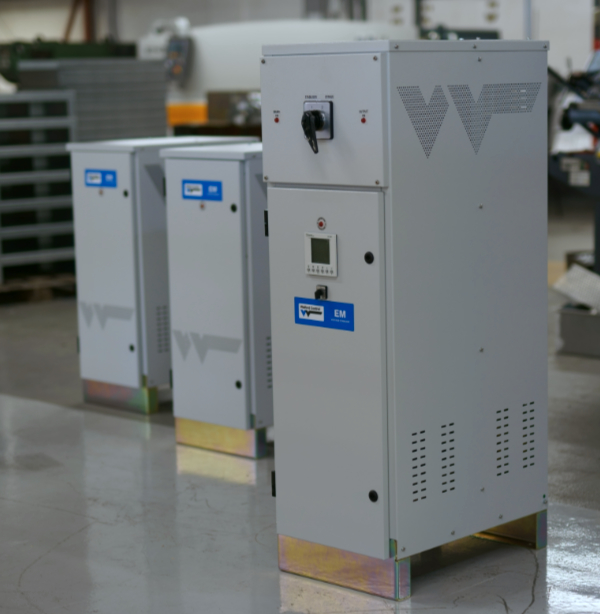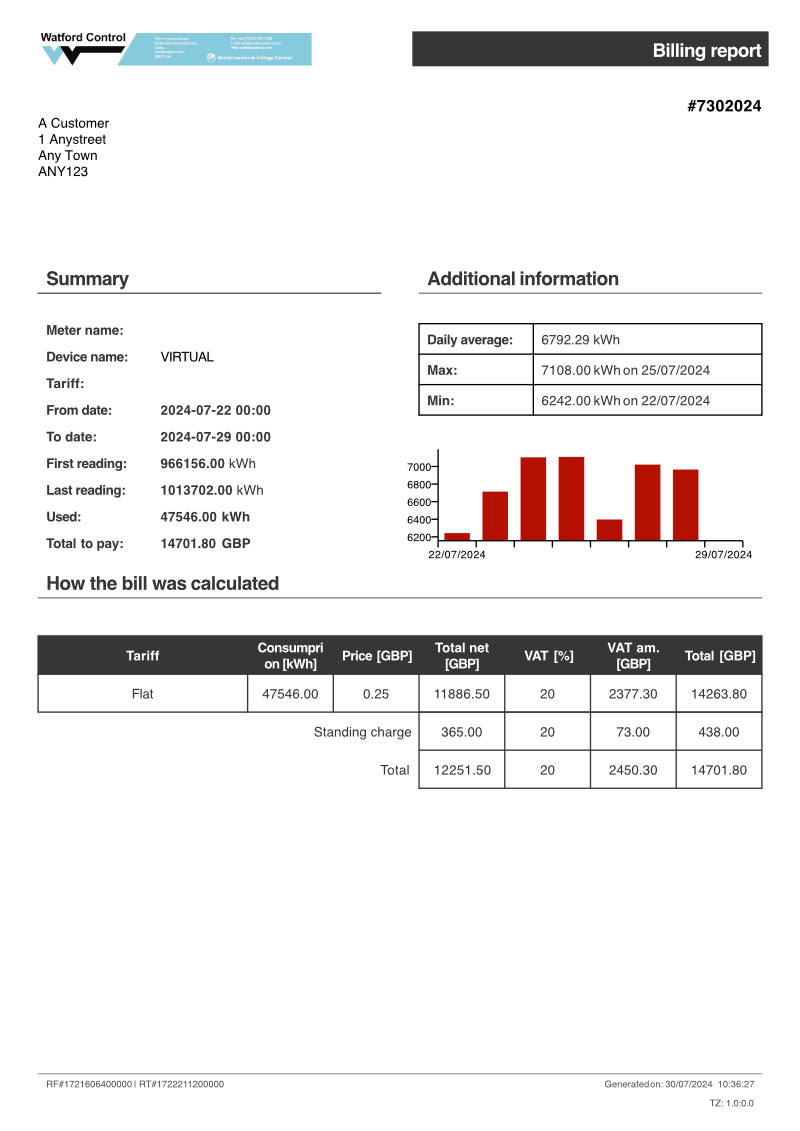Voltage Stabilizers in Guinea-Bissau
The Importance of Watford Control Voltage Stabilizers in Guinea-Bissau
Voltage stability is a critical factor in the efficient and reliable operation of electrical systems. In Guinea-Bissau, where the power supply is often erratic and unreliable, with variations of over +/-30%, the need for voltage stabilization becomes even more pronounced. Watford Control, a leading global manufacturer of voltage stabilizers, offers solutions that are not only necessary but also transformative for the continent's diverse electrical challenges. This explainer explores why Watford Control voltage stabilizers are essential in Guinea-Bissau, focusing on their role in improving power quality, enhancing equipment longevity, supporting industrial growth, and fostering economic development.
The Challenge of Unstable Power Supply in Guinea-Bissau
One of the most significant challenges facing many African countries is the instability of their power supply. Frequent power surges, voltage drops, and blackouts are common occurrences. These fluctuations can be attributed to various factors, including inadequate infrastructure, limited generation capacity, and the complex nature of power distribution networks. Such instability has far-reaching implications for both residential and commercial users, leading to equipment damage, operational inefficiencies, and increased maintenance costs.
Improving Power Quality
Watford Control voltage stabilizers are designed to address the issue of poor power quality. These devices regulate and stabilise the voltage supplied to electrical equipment, at the same time, ensuring it remains within a safe and consistent range. By doing so, they protect sensitive electronic devices from the adverse effects of voltage fluctuations. This is particularly crucial in Guinea-Bissau, where power quality can vary significantly from one region to another.
For instance, in rural areas where power distribution networks are often less developed, voltage stabilizers can ensure that the voltage levels remain stable, protecting appliances and machinery from damage. In urban areas, where demand for electricity is high, these stabilizers can help manage the load more effectively, reducing the likelihood of power surges and brownouts.
Best in Class Technology
For over 50 years, the industry has concentrated on the supply of Electromechanical Voltage Stabilizers, and these are by far the most common devices installed globally today. They are robust, reliable and well understood by users. However, Watford Control also has an impressive range of Solid State Voltage Stabilizers, covering power ranges up to 4mVA. They offer high speed voltage correction, maintenance free 'fit and forget' technology, along with wide correction ranges of +/-50%.
These Solid State Voltage Stabilizers offer clients the opportunity to reduce reliance on large UPS systems with wide tolerances, saving potentially hundred's of thousands of dollars in installation, servicing and maintenance costs.
In addition to accurately managing supply voltages, Watford Control Voltage Stabilizers can also incorporate Power Factor Correction capacitors within the same enclosure, to make further improvements to power quality.

Enhancing Equipment Longevity
Electrical and electronic equipment are significant investments for both households and businesses. Inconsistent power supply can drastically reduce the lifespan of these assets. Voltage spikes can cause immediate damage, while prolonged exposure to suboptimal voltage levels can lead to gradual wear and tear, ultimately resulting in premature failure.
Watford Control Voltage Stabilizers play a crucial role in extending the life of electrical equipment. By providing a stable voltage output, these stabilizers prevent the stress and strain caused by voltage fluctuations. This is particularly important for industrial machinery, medical equipment, and communication devices, which are often expensive and critical to operations. In sectors such as healthcare, where the reliability of medical equipment can be a matter of life and death, the importance of stable voltage cannot be overstated.
Supporting Industrial Growth in Guinea-Bissau
Africa is experiencing rapid industrial growth, with many countries striving to develop their manufacturing capabilities and reduce dependence on imported goods. However, industrial processes are highly sensitive to power quality. Unstable voltage can disrupt production lines, cause defects in manufactured goods, and increase downtime due to equipment malfunctions.
Watford Control Voltage Stabilizers provide a solution to these challenges by ensuring a steady power supply to industrial facilities. This stability is essential for maintaining high production standards and ensuring operational efficiency. For instance, in the textile industry, consistent voltage levels are necessary to maintain the precision of machinery used in fabric production. In the food and beverage industry, stable power is critical for maintaining the quality and safety of products.
Moreover, the reliability provided by voltage stabilizers can attract foreign investment. Investors are more likely to invest in regions where the infrastructure supports uninterrupted operations. By enhancing the reliability of power supply, Watford Control voltage stabilizers can help create a more conducive environment for industrial investment, driving economic growth and job creation.
Fostering Economic Development in Guinea-Bissau
The broader economic implications of reliable power supply are profound. Stable voltage levels contribute to the overall stability of the power grid, reducing the frequency and severity of power outages. This stability is essential for the growth of small and medium-sized enterprises (SMEs), which form the backbone of many African economies.
SMEs often operate on tight budgets, and the cost of replacing damaged equipment or dealing with production losses due to power issues can be crippling. Voltage stabilizers from Watford Control can provide these businesses with the confidence to expand their operations and invest in new technologies, knowing that their equipment is protected.
Furthermore, stable power supply supports the delivery of essential services such as healthcare, education, and communication. Schools can operate computers and other learning tools without interruption, healthcare facilities can rely on their diagnostic and treatment equipment, and communication networks can function smoothly. This, in turn, enhances the quality of life for citizens and supports the development of a skilled and healthy workforce.
In conclusion, the necessity of Watford Control Voltage Stabilizers in Guinea-Bissau cannot be overstated. These devices address the critical issue of unstable power supply, improving power quality, enhancing equipment longevity, and supporting industrial growth. By providing a reliable and stable voltage output, Watford Control Voltage Stabilizers play a vital role in fostering economic development and improving the quality of life for millions of Africans.
As the continent continues to develop and industrialise the demand for stable and reliable power will only increase. Investing in voltage stabilization technology is not just a matter of protecting electrical equipment; it is an investment in the future of Africa's economy and its people. Watford Control Voltage Stabilizers offer a proven solution to the challenges posed by unstable power supply, making them an essential component of Africa's ongoing development journey.
Watford Control have Voltage Stabilizers ready to be installed across Africa in the following countries;
Algeria, Angola, Benin, Botswana, Burkina Faso, Burundi, Cameroon, Cape Verde, Central African Republic, Chad, Comoros, Democratic Republic of the Congo, Djibouti, Egypt, Equatorial Guinea, Eritrea, Eswatini, Ethiopia, Gabon, Ghana, Guinea, Guinea-Bissau, Ivory Coast, Kenya, Lesotho, Liberia, Libya, Madagascar, Malawi, Mali, Mauritania, Mauritius, Morocco, Mozambique, Namibia, Niger, Nigeria, Republic of the Congo, Rwanda, Sao Tome and Principe, Senegal, Seychelles, Sierra Leone, Somalia, South Africa, South Sudan, Sudan, Tanzania, The Gambia, Togo, Tunisia, Uganda, Zambia, Zimbabwe,











